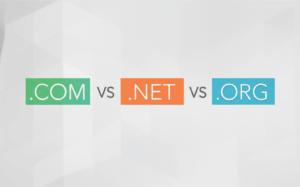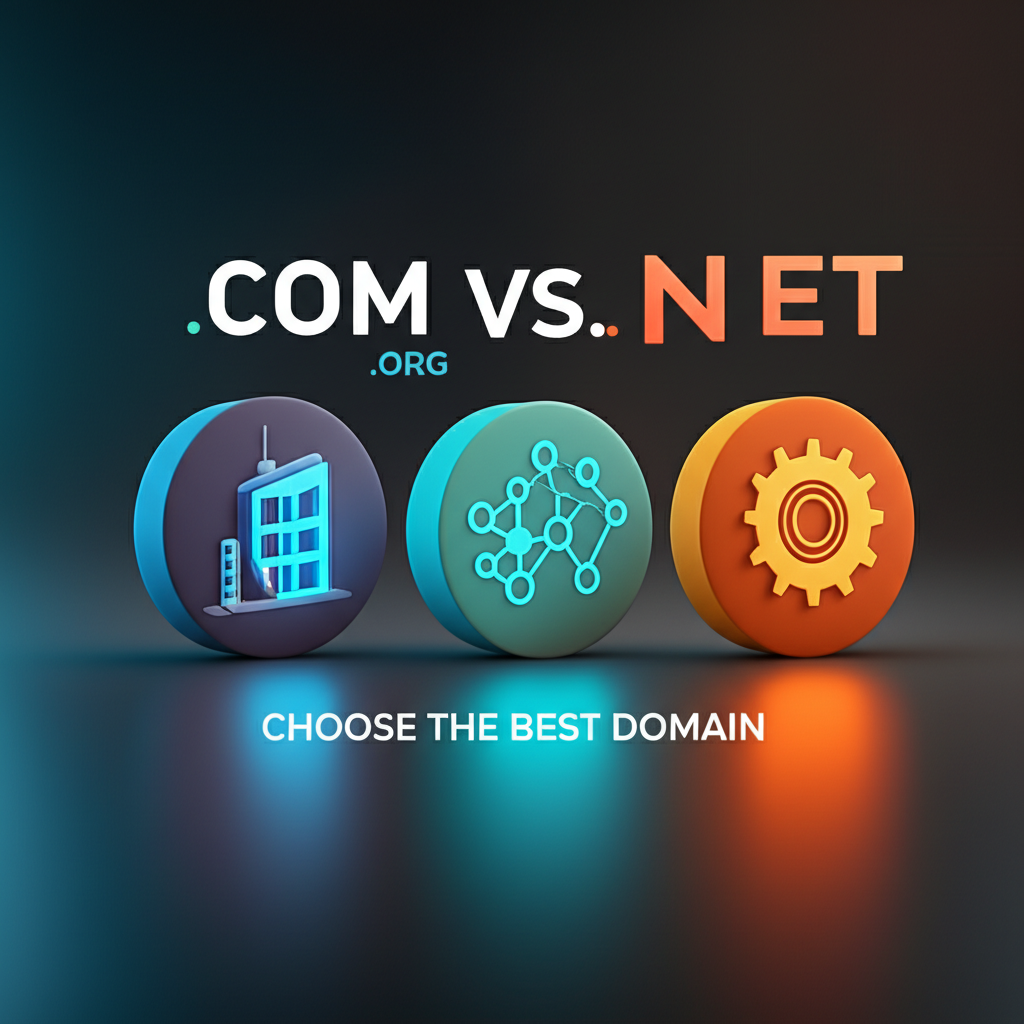- Understanding the Nuances of .COM, .NET, and .ORG
- .COM: The Commercial King
- .NET: The Network Hub
- .ORG: The Organization's Choice
- Making the Right Choice: .COM vs .NET vs .ORG
- Securing Your Domain Name: A Final Step
.COM vs .NET vs .ORG: Choose the Best Domain
Choosing the right domain name extension is a crucial step in establishing your online presence. While seemingly small, the suffix at the end of your web address – like .com, .net, or .org – can significantly impact your website’s credibility, searchability, and target audience perception. This article will delve into the differences between these three popular top-level domains (TLDs) to help you make the best choice for your website.
Understanding the Nuances of .COM, .NET, and .ORG

Each TLD carries a different historical meaning and intended purpose, which influences how users perceive websites using them. Understanding these nuances is essential for aligning your domain choice with your website’s goals.
.COM: The Commercial King
.COM is the most recognizable and widely used TLD globally. Originally intended for commercial entities, .com has become synonymous with the internet itself. Its widespread recognition makes it a powerful choice for businesses looking to establish a strong online presence.
Advantages of .COM:
Credibility and Trust: .COM domains are instantly recognizable and often perceived as more professional and trustworthy, particularly for businesses.
Memorability: The familiarity of .com makes it easier for users to remember and type your web address.
SEO Benefits: While not a direct ranking factor, the popularity and widespread use of .com can indirectly contribute to better SEO performance.
Disadvantages of .COM:
Availability: Due to its popularity, securing a desirable .com domain name can be challenging and often more expensive.
Competition: You’ll likely face stiffer competition in search engine results pages (SERPs) due to the sheer number of websites using .com.
.NET: The Network Hub
.NET was originally intended for organizations involved in networking technologies, such as internet service providers and infrastructure companies. However, its use has broadened over time, often serving as an alternative when the desired .com domain is unavailable.
Advantages of .NET:
Availability: Finding a suitable .net domain name is often easier than finding a .com equivalent.
Flexibility: While initially associated with networking, .net can be a viable option for various businesses, especially those in the technology sector.
Disadvantages of .NET:
Lower Recognition: .NET lacks the immediate recognition and trust associated with .com.
Potential Confusion: Users might accidentally type the .com version of your domain name, leading to lost traffic.
.ORG: The Organization’s Choice
.ORG is traditionally associated with non-profit organizations, charities, and foundations. It signals a focus on community, information sharing, and public service.
Advantages of .ORG:
Clearly Defined Purpose: .ORG immediately communicates a non-profit or community-focused mission.
Trust and Credibility (for Non-profits): Using .org enhances trustworthiness for organizations genuinely operating in the non-profit sector.
Disadvantages of .ORG:
Limited Appeal (for Businesses): Using .org for a for-profit business can create confusion and damage credibility.
Stricter Scrutiny: Some domain registrars may require proof of non-profit status for .org registrations.
Making the Right Choice: .COM vs .NET vs .ORG
The ultimate decision between .com, .net, and .org depends on your specific needs and goals. Here’s a quick guide to help you choose:
For-profit Businesses: Prioritize .com. If unavailable, consider .net, but only if it aligns with your brand and target audience. Avoid .org.
Non-profit Organizations: .ORG is the ideal choice. It clearly communicates your mission and builds trust with your audience.
Technology-focused Businesses: While .com remains the preferred option, .net can be a suitable alternative if your desired .com domain is unavailable.
* Personal Websites/Blogs: .COM or .net are both acceptable choices. The decision often comes down to personal preference and domain availability.
Securing Your Domain Name: A Final Step
Once you’ve chosen the right TLD, act quickly to secure your domain name. Choosing a reputable domain registrar is crucial for a smooth registration process. Don’t forget to also consider registering variations of your domain name with different TLDs to protect your brand and prevent cybersquatting. Choosing the best domain extension requires careful consideration. By understanding the nuances of .com, .net, and .org, you can make an informed decision that strengthens your online presence and effectively reaches your target audience.















Leave a Reply